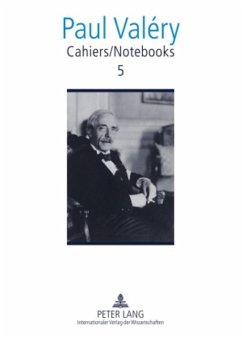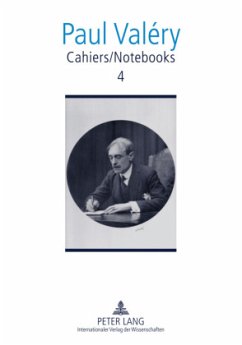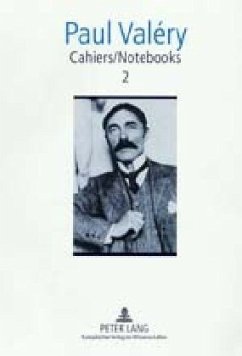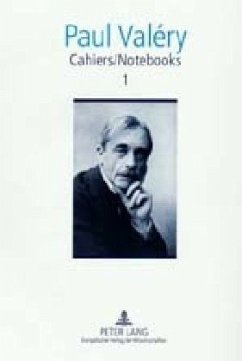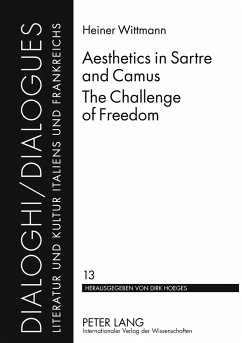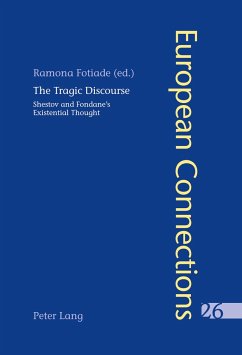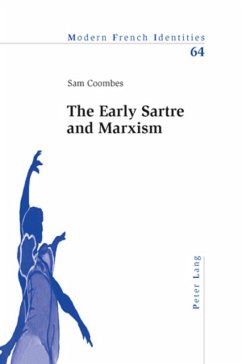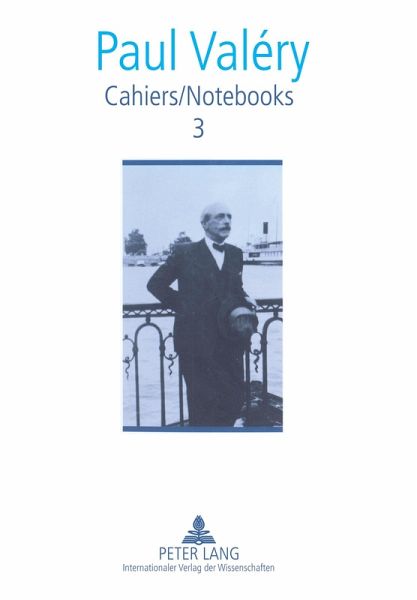
Cahiers / Notebooks 3
Editor in Chief: Brian Stimpson- Associate Editors: Paul Gifford, Robert Pickering and Norma Rinsler- Translated by Norma Rinsler, Paul Ryan and Brian Stimpson
Herausgegeben: Stimpson, Brian
Versandkostenfrei!
Versandfertig in 6-10 Tagen
112,95 €
inkl. MwSt.

PAYBACK Punkte
0 °P sammeln!
The Cahiers/Notebooks of Paul Valéry are a unique form of writing. They reveal Valéry as one of the most radical and creative minds of the twentieth century, encompassing a wide range of investigation into all spheres of human activity. His work explores the arts, the sciences, philosophy, history and politics, investigating linguistic, psychological and social issues, all linked to the central questions, relentlessly posed: what is the human mind and how does it work?, what is the potential of thought and what are its limits?But we encounter here too, Valéry the writer: exploratory, fragme...
The Cahiers/Notebooks of Paul Valéry are a unique form of writing. They reveal Valéry as one of the most radical and creative minds of the twentieth century, encompassing a wide range of investigation into all spheres of human activity. His work explores the arts, the sciences, philosophy, history and politics, investigating linguistic, psychological and social issues, all linked to the central questions, relentlessly posed: what is the human mind and how does it work?, what is the potential of thought and what are its limits?
But we encounter here too, Valéry the writer: exploratory, fragmentary texts undermine the boundaries between analysis and creativity, between theory and practice. Neither journal nor diary, eluding the traditional genres of writing, the Notebooks offer lyrical passages, writing of extreme beauty, prose poems of extraordinary descriptive power alongside theoretical considerations of poetics, ironic aphorisms and the most abstract kind of analysis. The concerns and the insights that occupied Valéry's inner voyages over more than 50 years remain as relevant as ever for the contemporary reader: for the Self that is his principal subject is at once singular and universal.
But we encounter here too, Valéry the writer: exploratory, fragmentary texts undermine the boundaries between analysis and creativity, between theory and practice. Neither journal nor diary, eluding the traditional genres of writing, the Notebooks offer lyrical passages, writing of extreme beauty, prose poems of extraordinary descriptive power alongside theoretical considerations of poetics, ironic aphorisms and the most abstract kind of analysis. The concerns and the insights that occupied Valéry's inner voyages over more than 50 years remain as relevant as ever for the contemporary reader: for the Self that is his principal subject is at once singular and universal.



